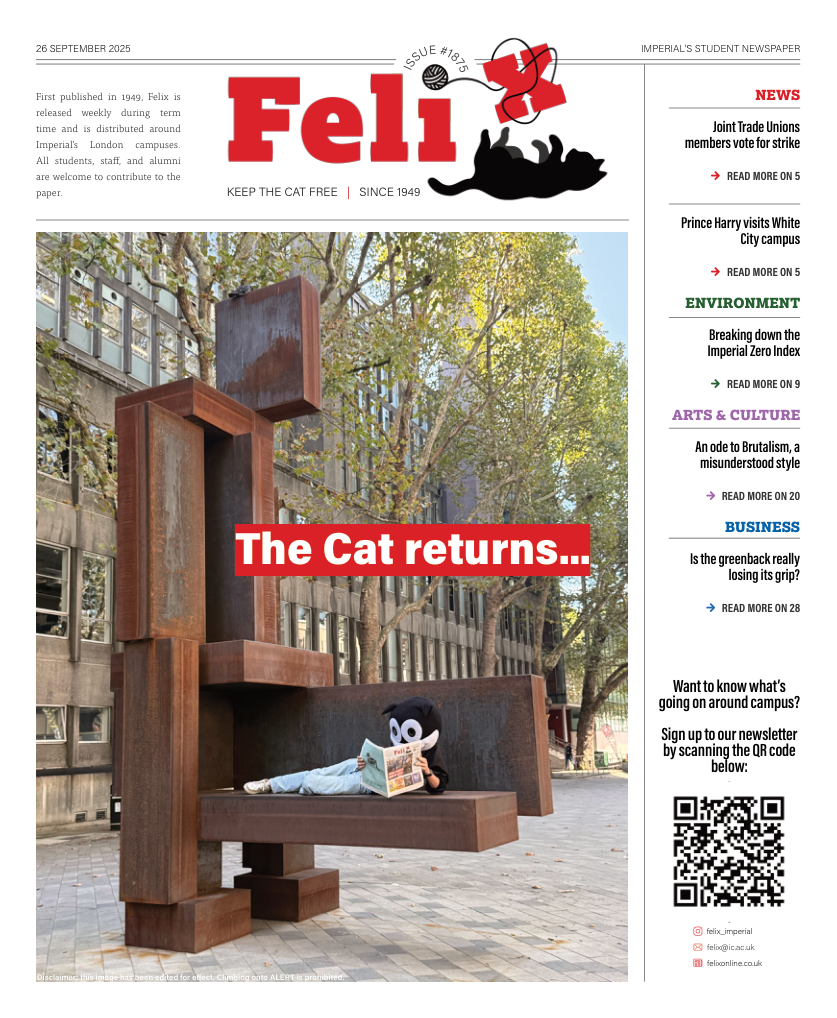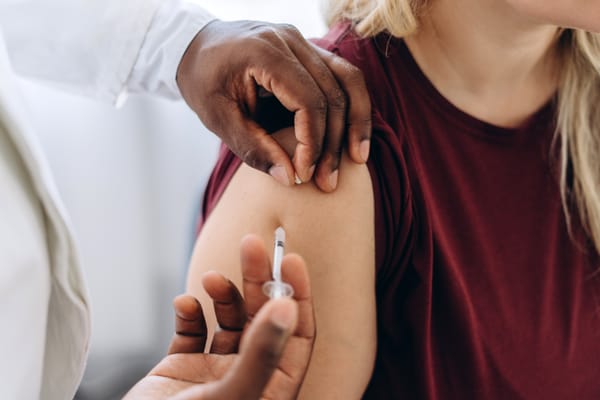Irregular is not uncommon: Lutea
Imperial’s Venture Catalyst Challenge participants developing a product that could change the way 1 in 3 women track and feel about their cycles
Right now, more than 260 million women are struggling with the pain and uncertainty that surrounds irregular periods, illustrating an issue that affects the daily life of 36% of all menstruating women. Four Imperial final year Medical students have taken notice of this pressing and historically ignored matter and set off to create a product that merges biological science with sophisticated technology and that could significantly better the quality of millions of lives. Felix Science recently met with two of the four founders of Lutea, one of the start-ups in the Imperial Venture Catalyst Challenge 2025, to find out more about the technological and social change that comes with developing a novel woman’s health product.
Lee Fernandes, Faye Munim, Danush Padmasri and Hafsa Waseem have come together to develop Lutea, each having done an intercalating year in a specialised area needed to develop a health-tech start-up: Global Health, Biomedical Engineering, and Management. Addressing a market gap where there are technologies already available (there are plenty cycle-tracking softwares, some directly included in phone’s health apps) requires a clear, innovative proposal: in the case of Lutea, it is placing biology at the centre of a novel algorithm.
All current period-tracking apps are user-input based: their predictions are retrospective, with algorithms working with data that has been consciously registered by the user. This statistics-based approach has proven to lead to misleading conclusions. For instance, two registered cycles of 20 and 40 days will average to a normal 30-day cycle, even though this is a clear example of consistently irregular hormonal changes.
Lutea’s Biomedical Engineer and Co-founder, Hafsa Waseen, is working to develop a non-invasive patch that tracks known scientific parameters (such as skin biomarkers) that are proven to relate to hormonal phases, allowing a minute-accurate prediction of the time and length of luteal, ovulation and menstrual phases. Strongly tied to product development is user consideration: “a patch permanently on is not realistic – we anticipate this and are designing something convenient, that users can forget they’re wearing,” says Hafsa. With sweat- and water-resistant properties, the patch should be a very small commitment with plentiful benefits, including avoiding the direct logging of symptoms on an app, which women report can feel draining and discouraging, especially for those with conditions not fully understood like PCOS or endometriosis.

For both these conditions and many more, the contraceptive pill is usually within the first line of treatment that is administered to manage pain: hormonal treatment like these involves serious risks, from severe mood swings to blood clots, as well as its inability to treat women who are trying to have children. Providing a space for women to receive personalised information on their cycle is therefore essential to allow predictive pain management, and Lutea is working to provide a user-friendly platform that “every woman will want to use”.
With a focus on what a platform like Lutea would mean for women, they provide 1:1 focus groups for potential users to share what they are missing from current apps and what they want in a new software.
When working in menstrual cycle health, an area that has historically not been made a priority within healthcare systems, it is fundamental that product development is accompanied by a social change: “creating cultural change on the way irregular periods are perceived is equally as important,” says Faye. Many other challenges are associated with beginning a start-up the femtech industry, with few examples set before them in the precise market and research gap they address. “It is hard to picture yourself being successful in a field where few people like you have,” says Hafsa.
“Stabbing in the dark” is the phrase founder Faye used to describe the way the healthcare industry has often tried to manage pre- and post- period symptoms and hormonal changes, with plenty of research, conversations and funding yet to be invested in this topic. Lutea’s founders are now two months ahead of the VCC finale in the Science Museum, with the four founders receiving training to continue developping a platform that could transform the understanding and quality of life of a third of women around the world.










